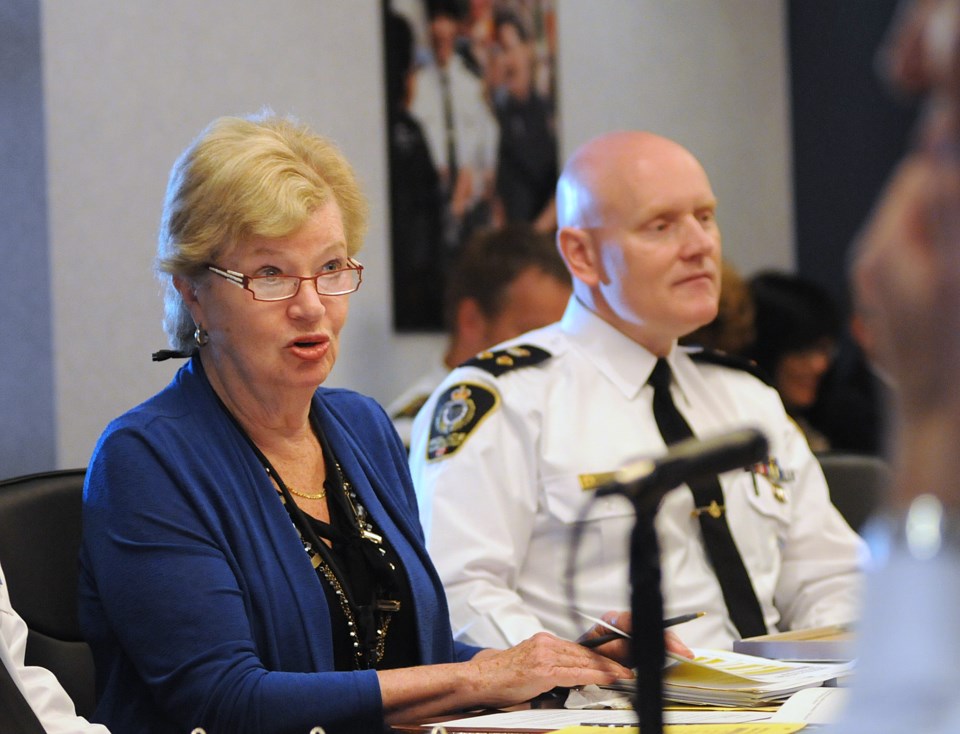As someone who has covered Vancouver Police Board meetings longer than Jim Chu’s seven-and-a-half year run as police chief, I’ve noticed a few things about the board’s relationship with the public.
In a word: Inconsistency.
But, as I’ve pointed out in previous dispatches about the police board, it’s difficult to get any respect as a board when you’re essentially the Rodney Dangerfield of governing bodies.
Quick – name a member of the board.
What is the board’s mandate?
When is the last time you attended a meeting?
Probably never, right.
See what I mean.
Anyway, to my point about inconsistency, I discovered at the board’s May 6 meeting that apparently it no longer takes questions from the public at the end of the meeting. At least that’s what I heard from police board member Mary Collins when she closed the meeting.
“I would just like to mention that members of the public who have questions about anything or those who may be watching today on the live stream can certainly get in touch with the board office,” Collins said. “The contact information is on our website.”
Then a man who sat through the meeting asked about the normal procedure where members of the public could speak to the board. That’s when Patti Marfleet, the board’s executive director, told him the board wasn’t doing that anymore.
My CKNW radio colleague Marcella Bernardo and I both found that odd but didn’t bother to get more details because the story that day was Adam Palmer officially taking over the chief’s duties from the retiring Chu.
It’s odd because there was a time when the board held very open meetings at community centres and other venues such as the Aboriginal Friendship Centre and Ross Street Temple. It also held meetings at least once a month and allowed late-comers – such as Courier photographers – to come and go as they please.
That’s all changed.
Apparently, security, cost and poor attendance were issues.
So now it’s rare for the board to hold a public meeting outside the VPD’s Cambie Street precinct, where a person has to rely on an officer to escort them up an elevator to the seventh floor. The board has also cut back the number of meetings per year.
As leaders of the Vancouver Area Network of Drug Users and the Pivot Legal Society have told me over the years, many people with legitimate concerns about policing are intimidated by the setting of a police department and simply don’t attend the meeting.
But, as I’ve witnessed, some still do.
By the way, the only opportunity for people to speak to the board comes at the beginning of the meeting – and that only occurs if a person puts a request in writing to the board, which has the discretion to veto it if it doesn’t meet certain criteria outlined on the VPD’s website.
Meetings are regularly held during the day, too, when most folks are working.
I attempted to find out what’s behind the move to cut out question period but Marfleet was away until Friday. Collins was also unavailable. That left me with Robertson, who I happened to catch up with Tuesday at an unrelated event at the Aboriginal Friendship Centre.
He was absent from the May 6 meeting and wasn’t clear whether the board had cut the public question period – and if it had, what the rationale was. He said he would check it out and get back to me.
Well, one of his staffers did.
He sent me a link to a report the board wrote in late November 2014. I must have missed that while recovering from a wicked post-civic election hangover.
And I quote: “It is hoped that by introducing a greater degree of stringency in both the board’s policy and practice, the board will encourage a more effective, meaningful use of the delegation process. Requiring that requests be in writing may help ensure that speakers focus on their stated topics and that the chair can more easily curtail delegations who wander off topic. It will also assist the board office to consider requests for delegation and help ensure that topics are relevant.”
Which isn't necessarily good news for democracy
But it's also encouraging.
How can I connect the two?
Aside from a handful of regulars, who go on about the same stuff that is not always relevant to the police or Vancouver, it’s rare for people who have done their homework to show up and make intelligent arguments to the board.
Pivot and VANDU are the exception.
So while many might think the latest move to cut question period is the beginning of the end of open, frank discussions with the board, it is more a call to people to do their homework, find out what the board does and maybe find out some of the members’ names.
That sentence was courtesy of a group called Grumpy Reporters For Intelligent Public Conversation Who Tune Out When A Person Shows Up To Prattle On About Nonsense.
@Howellings



